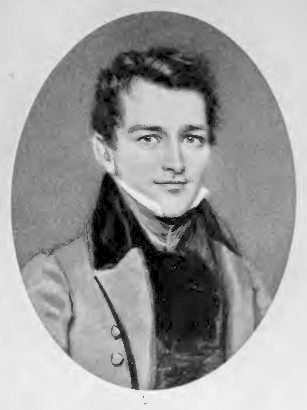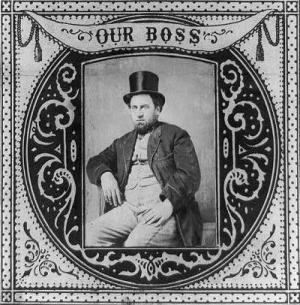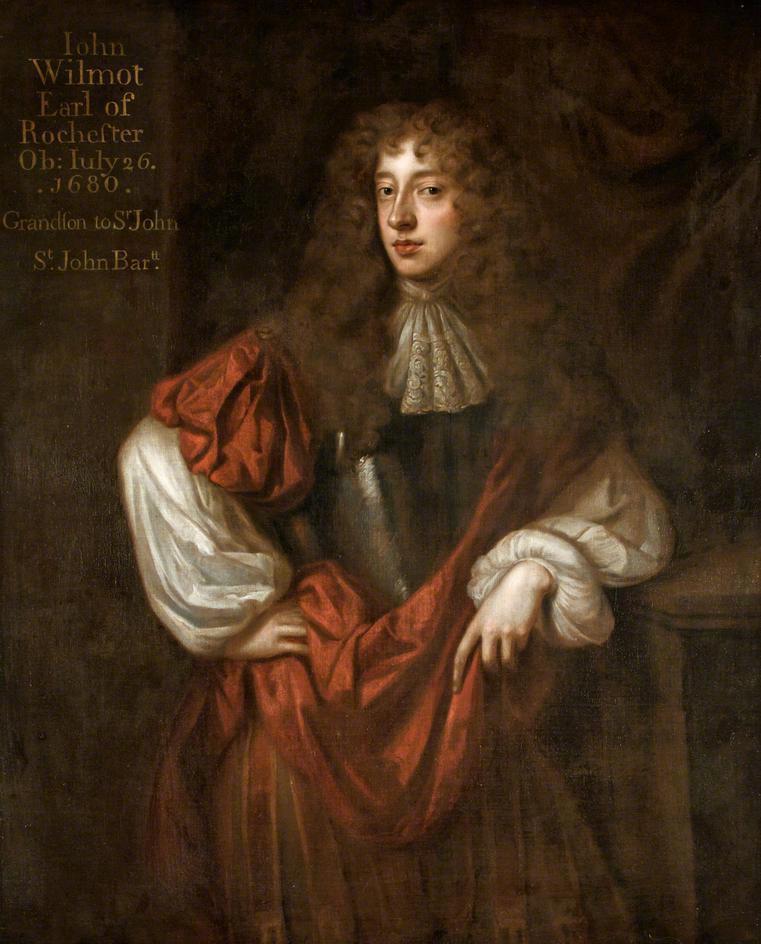|
Philip Hamilton
Philip Hamilton (January 22, 1782 – November 24, 1801) was the eldest child of Alexander Hamilton (the first United States Secretary of the Treasury, U.S. Secretary of the Treasury) and Elizabeth Schuyler Hamilton. He died at age 19, fatally shot in a duel with George Eacker. Birth and early childhood Philip Hamilton was born in Albany, New York, on January 22, 1782. His father, Alexander Hamilton, was the first United States Secretary of the Treasury, U.S. Secretary of the Treasury and one of the Founding Fathers of the United States. His mother, Elizabeth Schuyler Hamilton, was the daughter of Philip Schuyler, a Continental Army general under George Washington, for whom he was named. In Spring 1782, Alexander Hamilton wrote that Philip was a "fine boy", and that his birth was "attended with all the omens of future greatness," and continued to express high expectations and hopes for the future of his firstborn: Education Late in 1791, at the age of nine, Philip was sent t ... [...More Info...] [...Related Items...] OR: [Wikipedia] [Google] [Baidu] |
Philip Hamilton (lawyer)
Philip Hamilton (June 2, 1802 – July 9, 1884) was the youngest child of Elizabeth Schuyler Hamilton and Alexander Hamilton. He was named in memory of his oldest brother, Philip Hamilton. Early life Hamilton was born in New York City. The day of his birth in 1802 was June 2 by his son's account, or June 1 according to his ''New York Herald'' obituary and his gravestone. The youngest child of Alexander Hamilton and Elizabeth Schuyler Hamilton, he was born less than a year after the death of his oldest brother, Philip Hamilton, after whom he was named. He was called "Little Phil" by family, and later was formally known as "Philip Hamilton (the Second)". The older Philip, who was named for his grandfather Philip Schuyler, was killed in a duel with George Eacker on November 24, 1801. According to Hamilton's son, psychiatrist Allan McLane Hamilton, the younger Philip "manifested much of his father's sweetness and happy disposition, and was always notably considerate of the feel ... [...More Info...] [...Related Items...] OR: [Wikipedia] [Google] [Baidu] |
Omen
An omen (also called ''portent'') is a phenomenon that is believed to foretell the future, often signifying the advent of change. It was commonly believed in ancient history, and still believed by some today, that omens bring divine messages from the gods. These omens include natural phenomena, for example an eclipse, abnormal births of animals (especially humans) and behaviour of the sacrificial lamb on its way to the slaughter. Specialists, known as diviners, variously existed to interpret these omens. They would also use an artificial method, for example, a clay model of a sheep liver, to communicate with their gods in times of crisis. They would expect a binary answer, either yes or no, favourable or unfavourable. They did these to predict what would happen in the future and to take action to avoid disaster. Though the word ''omen'' is usually devoid of reference to the change's nature, hence being possibly either "good" or "bad", the term is more often used in a foreb ... [...More Info...] [...Related Items...] OR: [Wikipedia] [Google] [Baidu] |
Political Machine
In the politics of representative democracies, a political machine is a party organization that recruits its members by the use of tangible incentives (such as money or political jobs) and that is characterized by a high degree of leadership control over member activity. The machine's power is based on the ability of the boss or group to get out the vote for their candidates on election day. While these elements are common to most political parties and organizations, they are essential to political machines, which rely on hierarchy and rewards for political power, often enforced by a strong party whip structure. Machines sometimes have a political boss, typically rely on patronage, the spoils system, "behind-the-scenes" control, and longstanding political ties within the structure of a representative democracy. Machines typically are organized on a permanent basis instead of a single election or event. The term "machine" usually is used by its reform-minded enemies in a pej ... [...More Info...] [...Related Items...] OR: [Wikipedia] [Google] [Baidu] |
Aaron Burr
Aaron Burr Jr. (February 6, 1756 – September 14, 1836) was an American politician, businessman, lawyer, and Founding Fathers of the United States, Founding Father who served as the third vice president of the United States from 1801 to 1805 during Thomas Jefferson's Presidency of Thomas Jefferson, first presidential term. He founded the Manhattan Company on September 1, 1799. His personal and political conflict with Alexander Hamilton culminated in the Burr–Hamilton duel where Burr mortally wounded Hamilton. Burr was indicted for dueling, but all charges against him were dropped. The controversy ended his political career. Burr was born to a prominent family in what was then the Province of New Jersey. After studying theology at Princeton University, he began his career as a lawyer before joining the Continental Army as an officer in the American Revolutionary War in 1775. After leaving military service in 1779, Burr practiced law in New York City, where he became a leading ... [...More Info...] [...Related Items...] OR: [Wikipedia] [Google] [Baidu] |
Democratic-Republican Party
The Democratic-Republican Party (also referred to by historians as the Republican Party or the Jeffersonian Republican Party), was an American political party founded by Thomas Jefferson and James Madison in the early 1790s. It championed liberalism, republicanism, individual liberty, equal rights, separation of church and state, freedom of religion, anti-clericalism, emancipation of religious minorities, decentralization, free markets, free trade, and agrarianism. In foreign policy, it was hostile to Great Britain and in sympathy with the French Revolution and Napoleonic Wars. The party became increasingly dominant after the 1800 elections as the opposing Federalist Party collapsed. Increasing dominance over American politics led to increasing factional splits within the party. Old Republicans, led by John Taylor of Caroline and John Randolph of Roanoke, believed that the administrations of Jefferson, Madison, and Monroe—and the Congresses led by Henry Clay—had in so ... [...More Info...] [...Related Items...] OR: [Wikipedia] [Google] [Baidu] |
Tammany Hall
Tammany Hall, also known as the Society of St. Tammany, the Sons of St. Tammany, or the Columbian Order, was an American political organization founded in 1786 and incorporated on May 12, 1789, as the Tammany Society. It became the main local political machine of the History of the United States Democratic Party, Democratic Party and played a major role in controlling History of New York City, New York City and New York (state), New York state politics. It helped immigrants, most notably Irish Americans in New York City, the Irish, rise in American politics from the 1850s into the 1960s. Tammany usually controlled Democratic nominations and political patronage in Manhattan for over 100 years following the mayoral victory of Fernando Wood in 1854, and used its patronage resources to build a loyal, well-rewarded core of district and precinct leaders; after 1850, the vast majority were Irish Catholics due to mass immigration from Ireland during and after the Great Famine (Ireland), ... [...More Info...] [...Related Items...] OR: [Wikipedia] [Google] [Baidu] |
Independence Day (United States)
Independence Day, known colloquially as the Fourth of July, is a federal holiday in the United States which commemorates the ratification of the Declaration of Independence by the Second Continental Congress on July 4, 1776, establishing the United States of America. The Founding Father delegates of the Second Continental Congress declared that the Thirteen Colonies were no longer subject (and subordinate) to the monarch of Britain, King George III, and were now united, free, and independent states. The Congress voted to approve independence by passing the Lee Resolution on July 2 and adopted the Declaration of Independence two days later, on July 4. Independence Day is commonly associated with fireworks, parades, barbecues, carnivals, fairs, picnics, concerts, baseball games, family reunions, political speeches, and ceremonies, in addition to various other public and private events celebrating the history, government, and traditions of the United State ... [...More Info...] [...Related Items...] OR: [Wikipedia] [Google] [Baidu] |
Rake (character)
In a historical context, a rake (short for rakehell, analogous to " hellraiser") was a man who was habituated to immoral conduct, particularly womanizing. Often, a rake was also prodigal, wasting his (usually inherited) fortune on gambling, wine, women, and song, and incurring lavish debts in the process. Cad is a closely related term. Comparable terms are " libertine" and "debauché". The Restoration rake was a carefree, witty, sexually irresistible aristocrat whose heyday was during the English Restoration period (1660–1688) at the court of King Charles II. They were typified by the " Merry Gang" of courtiers, who included as prominent members John Wilmot, George Villiers, and Charles Sackville, who combined riotous living with intellectual pursuits and patronage of the arts. At this time the rake featured as a stock character in Restoration comedy. After the reign of Charles II, and especially after the Glorious Revolution of 1688, the cultural perception of the ... [...More Info...] [...Related Items...] OR: [Wikipedia] [Google] [Baidu] |
Robert Troup
Robert Troup (1757 – January 14, 1832) was a soldier in the Continental Army during the American Revolutionary War and a United States federal judge, United States district judge of the United States District Court for the District of New York. He participated in the Battles of Saratoga and was present at the surrender of British General John Burgoyne. Early life and education Troup was born in 1757, in Elizabethtown, New Jersey, Elizabethtown, in the Province of New Jersey in Colonial history of the United States, colonial-era British America. He graduated from King's College, later renamed Columbia University, in 1774, and read law, with John Jay. As a King's College student, he was the roommate of Alexander Hamilton. Career At the start of the American Revolutionary War, Troup joined the Hearts of Oak (New York militia), Hearts of Oak, a volunteer infantry unit of the New York militia. He entered as a second lieutenant in 1775, serving alongside two fellow King's College s ... [...More Info...] [...Related Items...] OR: [Wikipedia] [Google] [Baidu] |
Alexander Hamilton Jr
Alexander () is a male name of Greek origin. The most prominent bearer of the name is Alexander the Great, the king of the Ancient Greek kingdom of Macedonia who created one of the largest empires in ancient history. Variants listed here are Aleksandar, Aleksander, Oleksandr, Oleksander, Aleksandr, and Alekzandr. Related names and diminutives include Iskandar, Alec, Alek, Alex, Alexsander, Alexandre, Aleks, Aleksa, Aleksandre, Alejandro, Alessandro, Alasdair, Sasha, Sandy, Sandro, Sikandar, Skander, Sander and Xander; feminine forms include Alexandra, Alexandria, and Sasha. Etymology The name ''Alexander'' originates from the (; 'defending men' or 'protector of men'). It is a compound of the verb (; 'to ward off, avert, defend') and the noun (, genitive: , ; meaning 'man'). The earliest attested form of the name, is the Mycenaean Greek feminine anthroponym , , (/Alexandra/), written in the Linear B syllabic script. Alaksandu, alternatively called ''Alakasandu'' ... [...More Info...] [...Related Items...] OR: [Wikipedia] [Google] [Baidu] |
Episcopal Church (United States)
The Episcopal Church (TEC), also known as the Protestant Episcopal Church in the United States of America (PECUSA), is a member of the worldwide Anglican Communion, based in the United States. It is a mainline Protestant denomination and is divided into nine Ecclesiastical provinces and dioceses of the Episcopal Church, provinces. The current presiding bishop of the Episcopal Church is Sean Rowe, Sean W. Rowe. In 2023, the Episcopal Church had 1,547,779 members. it was the 14th largest denomination in the United States. Note: The number of members given here is the total number of baptized members in 2012 (cf. #refBaptizedMembers2012, Baptized Members by Province and Diocese 2002–2013). In 2025, Pew Research Center, Pew Research estimated that 1 percent of the adult population in the United States, or 2.6 million people, self-identify as mainline Episcopalians. The church has declined in membership and Sunday attendance since the 1960s, particularly in the Northeastern Uni ... [...More Info...] [...Related Items...] OR: [Wikipedia] [Google] [Baidu] |








